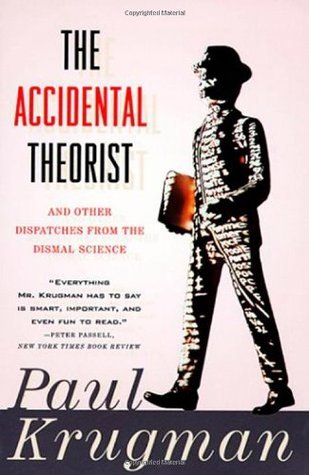What do you think?
Rate this book


206 pages, Paperback
First published May 6, 1998
The reason, I believe, is that the political appeal of economic conservatism in the United States really has little to do with an appreciation of the virtues of free markets. Instead it is about the promise of something for nothing – a rejection of the idea taxes must be collected, that scarce resources must be conserved. The reason the electorate likes tax reform schemes is that they always end up being tax-cutting schemes, based on the premise that the voters pay taxes but someone else pays the benefits – even though anyone who looks at where the money actually goes quickly realizes that Pogo was right: We have met the enemy and they are us (p. 178)
...
Why can’t we seem to keep a lid on medical costs? The answer – the clean little secret of health care – is simple: We actually do get something for our money. In fact, there is a consensus among health care experts that the main driving force behind rising costs is neither greed, nor inefficiency, nor even the aging of our population, but technological progress. Medical expenditures used to be small, not because doctors were cheap or hospitals were well managed, but because there was only so much medicine had to offer, no matter how much you were willing to spend. Since the 1940s, however, every year has brought new medical advances: new diagnostic techniques that can (at great expense) identify problems that can only be guessed at; new surgical procedures that can (at great expense) correct problems that could previously only be allowed to take their course; new therapies that can (at great expense) cure or alleviate conditions that could previously only be endured. We spend ever more on medicine mainly because we keep on finding good new things that (a lot of) money can buy. (p. 186-87)